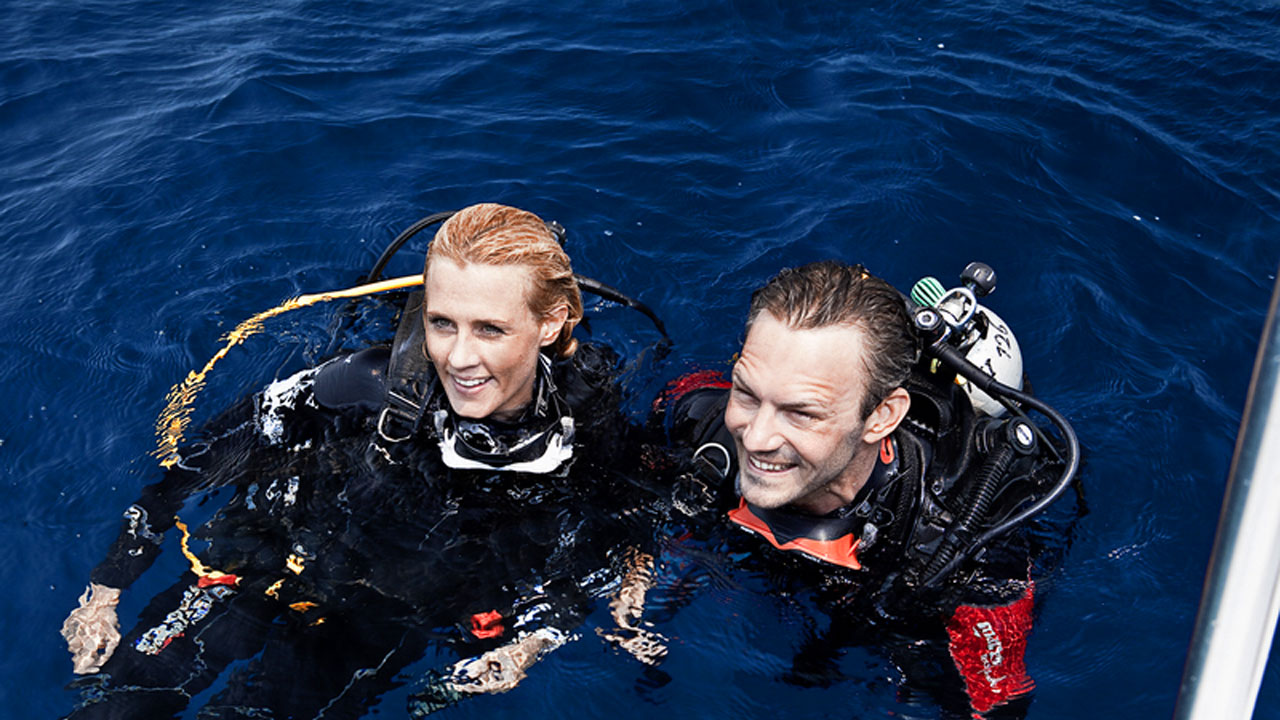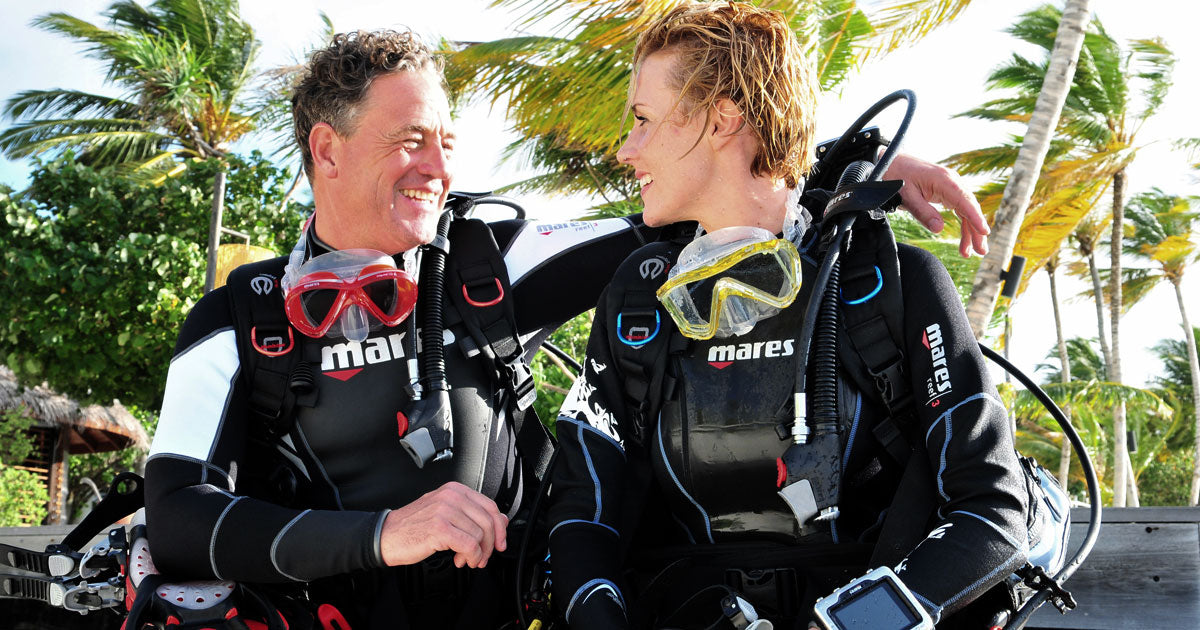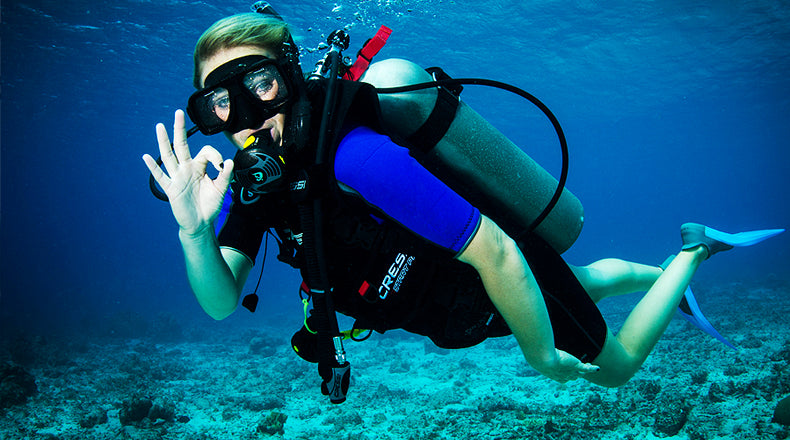Deep Diving Safety Tips

Deep diving is one of the most fascinating forms of scuba. It offers you a unique chance to observe some rare species of marine life and explore various special environments. However, these exciting new experiences come with a few risks, such as DCS or running low on air. Luckily, all of these potential dangers are avoidable, if you have proper training, right equipment, and enough experience. So let us briefly discuss a few essential tips that will help you to stay safe and enjoy your deep dive.
Know Your Gear
One of the most important things, when you go deep diving, is having a properly functioning equipment set that you are familiar with. Make sure that the gear you are going to use is working and adjusted properly during the shallower dives beforehand. Pay special attention to the amount of weight you can carry. You should have minimum weight to let you hang on a nearly empty tank at 15 feet. More weight needs more air.
Choose the Right Buddy
The proper buddy will be with you every step of the way. When deep diving, it is important to stay in contact with your buddy at all times. Only with clear methods of communication, can you be safe. Look each other in the eye and if a buddy is having trouble, abort the dive. Make sure you can locate and know how to use the other diver’s BC inflator, alternate air source, and weight release.
Inspect the Conditions
Never go scuba diving if you don’t feel like it. Even if you’re in the middle of a dive, you can abort and ascent if you are feeling uneasy. Go diving if the conditions are to your liking. Being in the water, especially deep water, is an unnerving experience. Diving in the warm Caribbean waters is different, but the same factors that are in play in the Caribbean won’t work if you want to go scuba diving in the frigid waters of Jersey.
Remember Your Dive Plan
It is essential that when diving, you stick to the plan. Decide the route according to time, depth and air limits. Assign yourselves a time for ascent, the bottom time should not be more than a few minutes. Understand the conditions of the water such as comfort, temperature, planned depth etc. Keep a checklist of your equipment and confirm your method of communication such as hand signals. Also keep in mind what you should do in case of emergencies, such as separating from your buddy, having low air or getting entangled etc.
Get Mentally and Physically Ready
Take a good rest the night before your planned dive day. Fatigue predisposes you to decompression sickness, nitrogen narcosis and can make you inattentive or forgetful, which creates additional risks. You may also want to limit the consumption of alcohol and caffeine at least the night before, as those can cause dehydration. Make sure to drink about two extra quarts of water per day.
Understand the Precautions
Diving is easy if you know how, and with basic knowledge of deep sea diving, you can understand further why so many people are taking their underwater trips and having the time of their lives.




